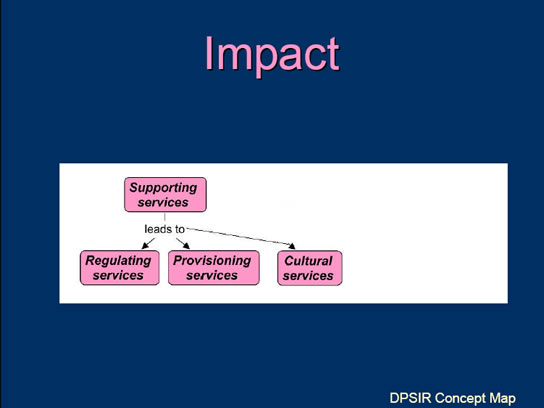Tutorials on Systems Thinking
Impact

12 / 31
The Millennium Ecosystem Assessment (Hassan et al. 2005) defined four categories of ecosystem services:
Supporting services - biophysical processes that maintain the functioning of the ecosystem, and are necessary for the production of other ecosystem services, but may not have direct impacts to humans, including
- Structure – Soil stabilization, wave energy attenuation
- Nutrient & contaminant processing
- Water cycling
- Carbon storage & cycling – including primary production
- Provision of food and habitat to critical species
Regulating services – biophysical processes that regulate the ecosystem, including
- Air quality regulation
- Climate regulation
- Water regulation
- Erosion regulation
- Water purification and waste treatment
- Disease regulation
- Pest regulation
- Pollination
- Natural hazard regulation
Provisioning services – the biological, chemical, or products obtained or harvested from ecosystems for human use including
- Water resources – including fresh water
- Food resources – including finfish, shellfish, and hunting stock
- Biochemical & genetic resources – for pharmaceutical development, or breeding of wild & controlled populations
- Raw materials – including fuel, fiber, and ornamental resources
Cultural services – include the nonmaterial benefits people obtain from the ecological integrity of ecosystems through spiritual enrichment, cognitive development, reflection, recreation, and aesthetic experiences, including
- Recreational value and ecotourism
- Aesthetic value
- Cultural value
- Spiritual or religious value
- Social relations
- Sense of place
- Educational or knowledge value
- Research potential
- Untapped future potential
